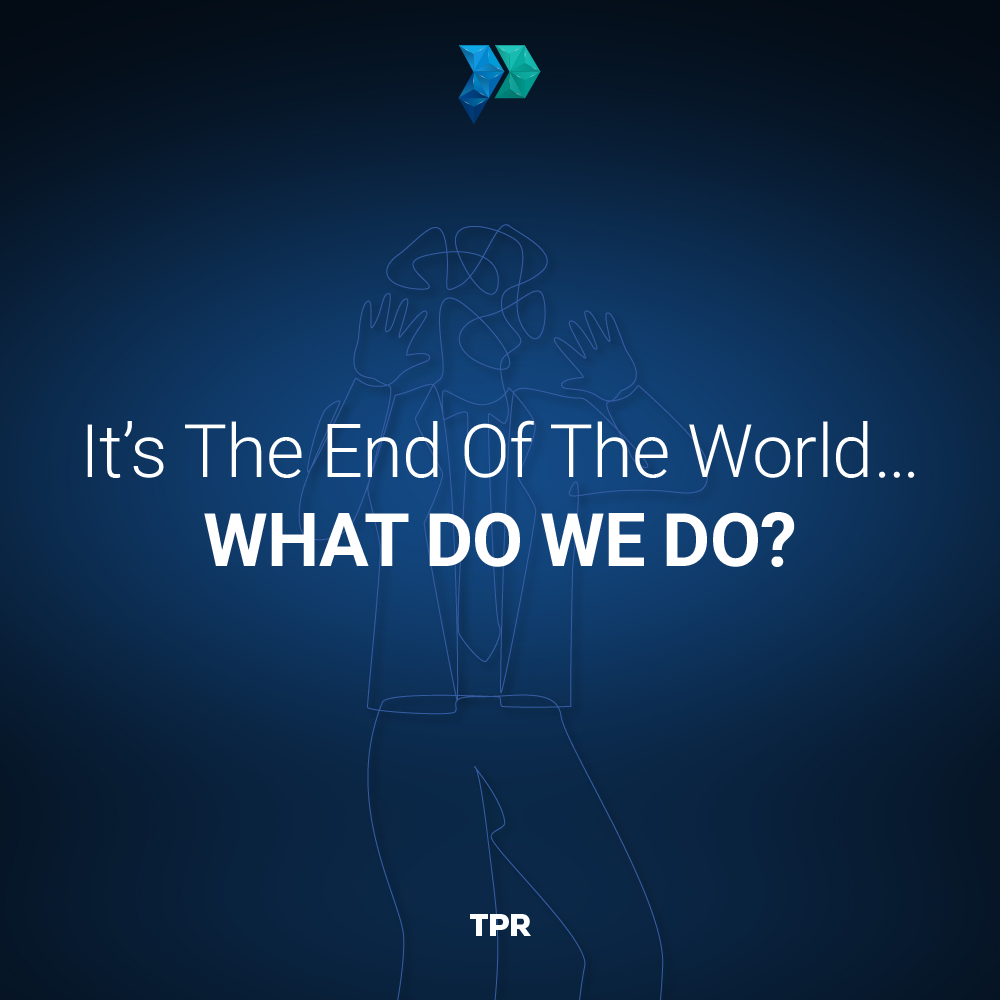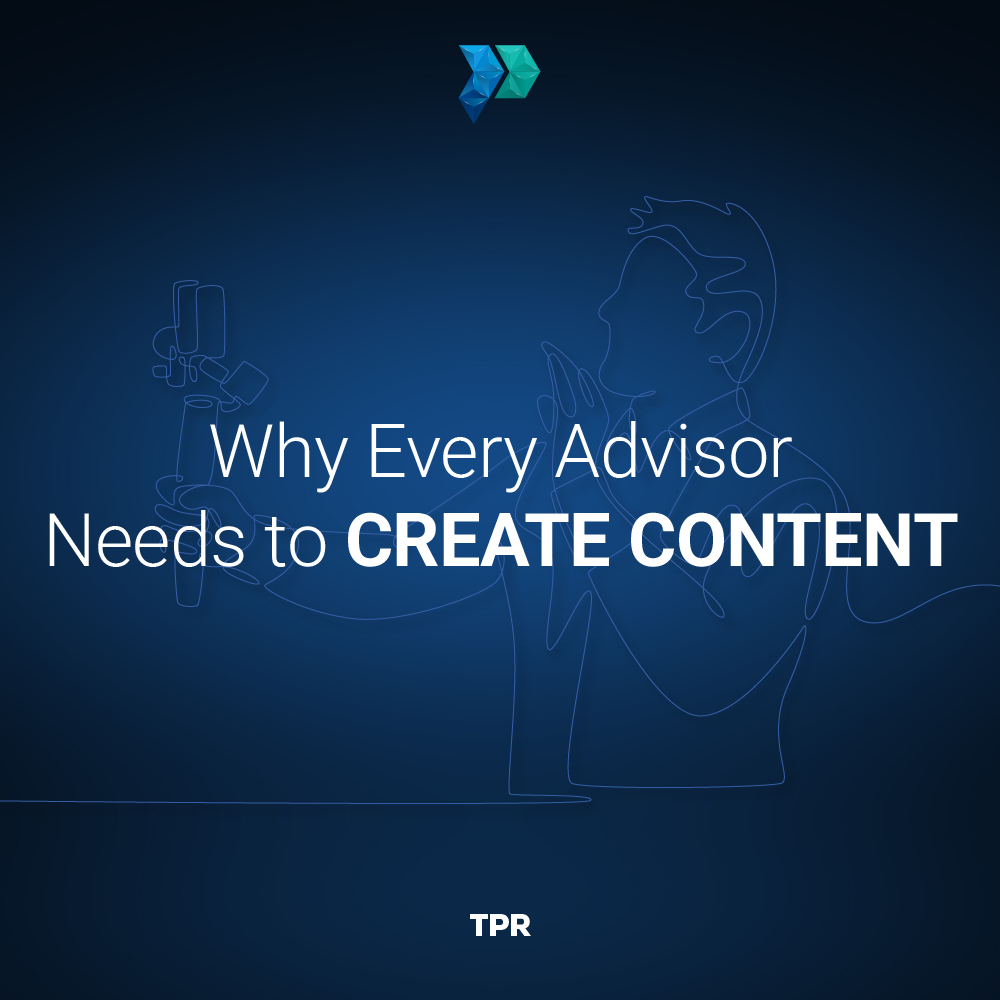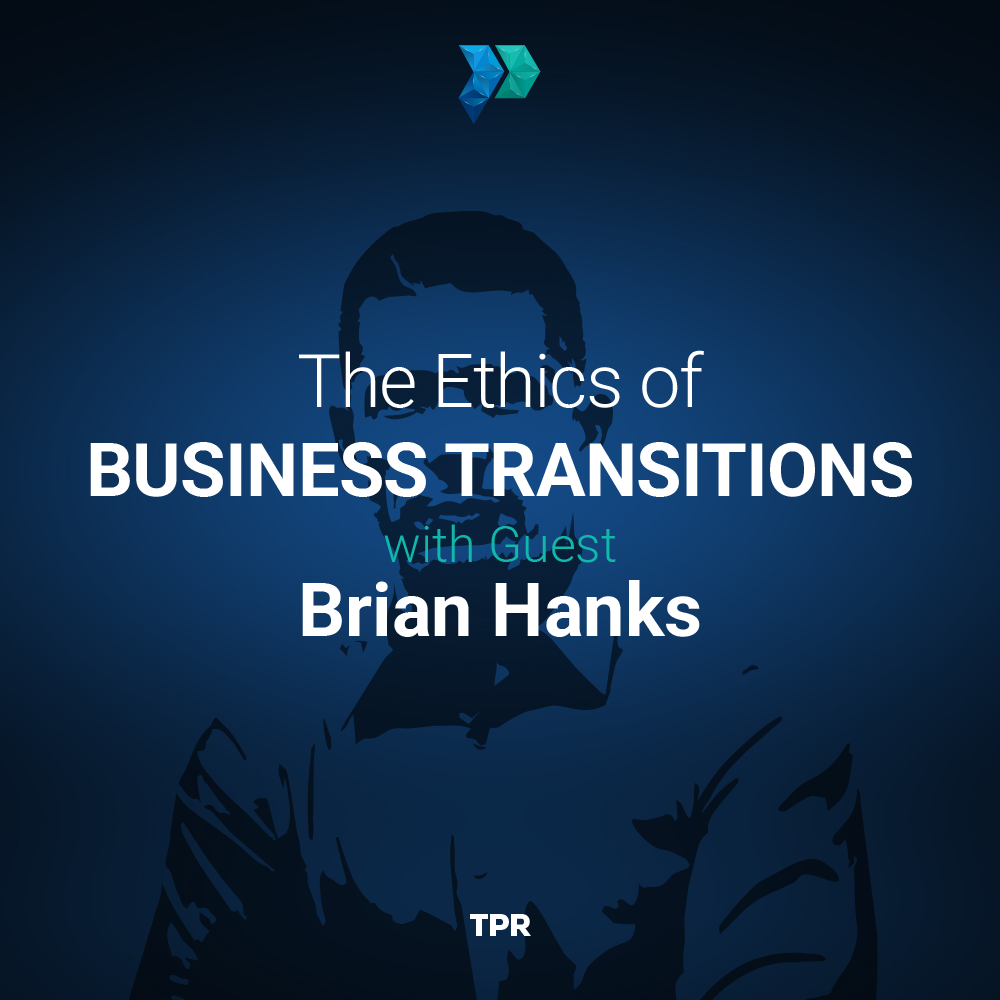What You'll Learn In Today's Episode:
- Professionalism and likability are important qualities for professionals in the financial planning industry.
- The authority principle plays a significant role in establishing trust and credibility with clients.
- Professionals have a responsibility to address clients’ uncertainties and provide emotional relief through estate planning.
- Ongoing communication and building meaningful relationships with clients are crucial for success.
Jamie Shilanski is exploring the critical intersection of professionalism and likability in the world of financial planning. With a spotlight on estate planning, she offers expert insights that every financial advisor should consider. The episode unpacks the powerful ‘authority principle,’ revealing how perceived authority and trust can make or break a financial advisor’s relationship with clients.
But it’s not just about numbers and legal jargon. Skilled financial advisors can address their clients’ deepest uncertainties and provide emotional relief through comprehensive estate planning. Jamie’s advice underscores the importance of empathy and understanding in delivering top-notch financial guidance.
Read the Transcript Below
Jamie Shilanski
Have you ever worked with a proposal that seems their mannerisms are kind of unprofessional, or their work product is unprofessional. And you think to yourself, how are they still in business? If I pulled this, I would not have any client ever hire me. Welcome back, TPR nation. This is Jamie Shilanski, in Worlds to Conquer, and I have to tell you, we work with an estate planning attorney who I adore, like she’s so likable, she’s so gosh, likable, but she can’t return an email, she can’t return a phone call, and it takes months, if not years, to get things done. I hear from clients all of the time how they cannot stand how unreliable and unresponsive this professional is and they ask me for alternatives. Do they have different people that they could work with, you know? And so we’ve got a list, you know, because we don’t just exclusively recommend worse, but we’ve got our top this really, really likable attorney that cannot, for the life of her get anything done in a timely manner. But I will tell you this. I was on the phone with a very, very blunt client. I mean, she’s fierce, you know, she’s got an MBA. She has a certain level of expectations, and if we step out of line, if we are delivering, as a financial planning firm where she thinks we should be, she will let me know in no uncertain terms. She will not excuse it. She will not dismiss it. She’s saying, Hey, I’m paying you a lot of money. I’m happy to do that, but I expect XYZ out of you. And I’m like, Yes, Ma’am, you got it, of course. And we snap to we do the things that we said we were going to do for the client, but we get this client on the phone with this attorney who hasn’t done things in seven months. The client’s an afib. She’s got all of these different things happening in her life that she really wants to make these estate planning adjustments, because it’s going to end up disinheriting a long lost child she didn’t know existed. And so she wanted to go clearly, she’s not the birth mom. She’s not that. So she wanted to do this. And we’re working with the estate plan attorney. We’re just belaboring this point. We finally get a meeting on the table. We go through the phone call. The phone call takes 10 minutes. She’s just doing amendment on existing trust. And then we wrap up the phone call, and I, I’m expecting on this phone call that this client is gonna light her up like a Christmas tree, that she’s gonna be like, this is unexpectable. I will go to the Bar Association. You need to honor what you say, blah, blah, blah. But since laughter and birth and like, Oh, thank you so much. And we get off the phone, and the client calls me back immediately after, and is so like, Oh, I just, I just love her. She does such a great job. Blah, blah. And I’m like, are she freaking kidding me? This is the same person I have had to hound for six months. You know, in order to get these changes made, that by the way I drive, I’m not an attorney, but I wrote out exact instructions of what we wanted to have for the attorney to finalize, and the client was elated with her. And so this becomes this likability factor, that some people are more likable than other people, and when those likable people are also accompanied by certain credentials, such as attorney or CPA man, if clients don’t just melt like butter. And so it makes you step back and say, All right, what are these people doing in order to be likable? And I think first we have to address the authority principle. And the authority principle is all the acronym soup and why it matters. When my son, he graduated high school at 16, and then he graduated from college with his Bachelor’s at 21 and when he did those, no, he’s 20 when he graduated college. But anyhow, so when he did those, because he wanted to do it before 21st birthday, did those things. And he said, Okay, what do I need to do now? And I said, well, you need to go after different acronyms. You need to get some alphabet soup behind your name. Now that is not the the advice I would give most 30 and 40 year olds. Why? Because they have time. They have time and they have experience, and they normally have situations under their belt that they can rely and fall back upon. But 20 year olds don’t you don’t have enough time, you don’t have enough experience, and therefore you need to go get some type of credentialing so that you can establish some level of authority. Now my caution to this is, if you go out and get too much credentialing, if you have too many things after your name, it will mean nothing to the client. It will mean absolutely nothing to the client, and it will do you disservice, because it looks like all you like to do is hang out and take tests, instead of actually putting the reps in and getting the work done and bringing on clients and developing plans. There’s just, there’s just, it’s a seesaw, it’s a teacher toddler, which I think are the same instruments on a playground, just different locations of where you’re at. Maybe, I don’t know, I didn’t spend a lot of time in playgrounds. I was wherever there was a ball, basketball, football, field hockey. It didn’t matter wherever I could go and there was some type of sport going on, preferably one in which you could be a little combative. I was down for you could keep your swings. I get motion sick. Anyway. Okay, so we go to this authority principle, and if you’ve got the right number of acronyms after your name, just a couple couple of acronyms is all you need, especially if you’re in your early 20s. What is this? The authority principle says that principles of influence, people tend to follow and trust the opinions of perceived authorities. So think attorneys, CPAs, law enforcement agencies, FBI members, anyone in a uniform, and especially if you have a badge, your spouse will listen to every day of the week over you, as long as you’ve been married more than a year, the first year you get a free pass, because I think you can do no wrong after that, anyone, any stranger in a uniform is going to know way more than you do. So we have these perceived authority principles, and it sends to us these signals that this person is trustworthy because they have taken an oath, they have passed an examination, and they have privilege of knowing something that we don’t know, or we are restricted from being able to do I’ve met really smart people, myself included, that could probably draft most of their estate planning documents. They could probably read somebody else’s and write down all of their own wishes and things. But here’s what we don’t know, myself included. We don’t know the proper legal forms. We don’t know the indentation. We don’t know what a needs to be capitalized, what doesn’t need to be capitalized when we say and or when we say us, what commas matter, and why do they matter? All of those things that have been picked apart so that we can make attorneys into attorneys. When I am working with CPAs, a lot of times I look at things and I say, Hey, this is what I want to do in concept. Tell me how it works or doesn’t work. And then I get feedback from that CPA. And that feedback from the CPA says, hey, you know what? Actually the tax code says this. Now, once I understand what tax code that they’re referring to specifically, I can go grab that code and I can now start looking for some type of letter of interpretation, some type of ruling, a private memorandum that happened in the IRS that may validate or potentially invalidate want to do what I want to accomplish, but I always start with CPA or that attorney. I’m giving them the trusted authority that comes with the level of schooling that they have done. Now I’m hoping that the students are recidiving those sometimes, and the professional on the phone, I don’t always think so, but I’m hoping that those are also recipient when I’m offering advice, that’s the authority principle and finance, especially in today’s age, there are a lot of really savvy clients out there. We make this great big production that we know more about finances than most clients, because that’s what we do every single day. And if you are mechanic every single day, you’re going to know more about mechanics than I am. This is what our chosen profession is about. And we choose people in these lines to point out not the things we know, the things that we thought we knew, but maybe aren’t so. And so we need them to be able to tell us, hey, you can’t do that because of x or you didn’t consider Y. This is a potential pitfall. I want to make you aware of it, and I want to make sure that we are coming up with a plan to avoid that. That’s that authority. We want to relay that to somebody else, in fact, so much so that whenever we look at like civil negligence, we’re almost always holding the professional to the higher standard. In fact, I’m pretty sure before this just got overruled. Wasn’t there something called like the chevron law that said that liability and negligence lies on the person who had the most knowledge and expertise in that field? This is something of that nature, and we look to those professionals to be the ones to give us the advice. And we say that. We say those words exactly we say, but you are the professional. Hired a professional. Think about our home repairs, our carpentry, our projects around the house. I hired a plumber. I am not a plumber. I understand that water comes from the ground and it needs to go through my faucet and it needs back out through a pipe. That is it. That is all I understand. And so when we hire someone, we’re hiring them as a professional to recommend. Do it? Do you replace all the copper with pecs? I don’t know what I need in order to make a decision. We we transfer that responsibility, we transfer that to the professional, and that transfership of accepting them as the professional is really about establishment of trust. I don’t know something, and I’m trusting that you have more acute knowledge on this subject than I do, and will recommend and give me the best advice. And why do we need that from professionals? Because as human beings, we don’t like risk and we don’t like uncertainty. We don’t I mean, I’m not talking about your spontaneous road trip where you get in the car with your spouse, you flip a coin, heads, Carolina, tails, California. Is that the right song? Okay? Who? Come on. 90s. Country fans. Help me out here. Alright? So we don’t like that level of, you know, we might have impulsive spontaneity, where we want to do something adventurous and shake it up. We might decide beef over chicken for dinner, and kind of shake that up in our world. But we don’t otherwise like uncertainty, because if we did, then we would take the approach that very few clients have. But every occasion, I end up seeing one that when we go through their estate planning, you know, they’ll get their advanced medical directives done, they’ll get their durable power of attorney. But when it comes to the will and the estate they’re like, Nah, I’m dead. I don’t care. I’m not going to try to exercise some ridiculous level of control I don’t have because I’m dead, it’s no longer my problem. It’s no longer my stuff. Other people can handle it. And all my time, I think I’ve only had three encounters, and two of them were female. That really stuck out in my mind. They’re like, No, I’m dead and gone. I’m not getting attached to this life. You know, I don’t care how these things end up. But for most of our clients, that’s not the case. They really do care what happens to their estate. They don’t want to see most of their earnings go to the IRS. They don’t want to see the kids squander them. They want to provide education for their grandchildren and opportunities maybe they didn’t have. They want to make sure their spouse is taken care of, especially if we’re in a situation where you have a husband and a wife, and maybe the husband has the pension and the health care and everything like that, and the wife has, you know, something less significant than those benefits that the husband wants to make sure the wife is now being taken care of. And vice versa. Women are great about this. Women want to make sure that, hey, I’m not leaving you in a bad spot. I want to make sure you have access to everything. Women are great about tidying up their lives and thinking about when they’re not here, making sure others are provided for. And so when we have this transfer to this professional. We want to be safeguarded. We want to know that those levels of uncertainty are being addressed and taken care of as best we can. And so this is why it’s so paramount that we constantly revisit the estate planning conversation. We run our beneficiary report every couple of years, just because if anything in your life has changed. Maybe the kids have now matured, and you’re assessing their financial maturity a little bit more than when they were little. Maybe the person that you were going to leave as your primary representative, as your trustee of your state, as your financial guardian of your assets, has come into different situations. Maybe they’ve got diagnosed with cancer, maybe you know they’ve got a complicated life that it no longer makes it appropriate to appoint them. We start our hands from a certain level of uncertainty that they’re always going to be concerned about. We seek reassurance and validation from somebody else. Are we doing this correctly? How are we doing compared to other people? Have I addressed everything else, and this is one of the Paramount conversations inappropriate to record, but I wish we could that we have with widow or widowers, because regardless of how the decedent financially left, the widow or widower, we’re going to have a really positive conversation out of it. We’re going to address the hard topics. If you’ve been financially hosed by by the person you were married to and just hasn’t done a good job taking care of you, there’s no real avoidance of that. But guess what, if you’re the spouse, you already know that our job is not or point out or make an exaggeration of the situation that you’re in ours, is to find the positives, and then we say, okay, great, you know what we but we’re going to make some lifestyle changes. And you know what your decedent spouse, or whatever their name is, Bob, wanted to make sure that you were confident that you could make those decisions. And we’re going to try to find some way to make the person who is left behind not feel as if they were grossly neglected in the planning code everything, but we’re going to find a great way to set them up to not feel that. Because, by the way, I mean, think about it, there’s nothing you can do. There’s nothing you can do to go back and change things post mortem. It’s what’s done is done, the situation you’re in is what you’re in that should have been protected and safeguarded from long before you got to wherever you are. It wasn’t for whatever reason. Now we have to move on with life. Now we have to find the positive. Now we have to make the lifestyle changes. One of the hardest conversations we ever have with a client is talking to widower, and say you don’t have enough, you need to find a job, you need to move into the kids. You need to you need to do X, Y and Z. That’s a difficult conversation, and we try very, very hard to handle it with grace and to not make them now resentful of the person who has since passed, but it’s difficult now, the reason that we go through these hard conversations, especially when both parties are alive, is so that now we can provide emotional relief. Have you ever been at the signing of finishing out everyone’s estate planning, once they make all the wills and the trust and they’ve got all their documents in order, and they make guidance signature, and they get this beautiful copy and a lot binder of all their stuff. The emotional relief can be like a tidal wave coming across that conference room. People are like, I’m so glad that is done. I’ve been, you know, really worried and concerned about that for X amount of time. Thank you guys so much, and it’s just this massive weight that gets lifted off of their shoulders now at Shilanski and Associates our RIA up in Anchorage, Alaska, most of the time, we are with the clients and the attorney working hand in hand to get their estates set up. Now, the reason that we do this is because ultimately, the client is going to come to us with questions anyways. So we want to understand how all the mechanics of what their choices are work, and we want to make sure we have a copy. We want to make sure that we’re updating beneficiary designations. We want to make sure that in crisis, when the client contacts us, we can help facilitate getting any documents to any professional that we needed to because we’ve already prepared them that we want to be their 911, and their 411, if they have an emergency, call us if they have a question. Call us. But we’re also doing we’re also stitching ourselves into the fabric of the client’s life. And so when we get involved in the estate planning, when we’re going through building the trust, when we’re hearing about the kids and the daughter in law or the son in law, and we’re learning about those mechanics, I have a really good friend. She’s got MS, and I want to make sure I provide for her a little bit, because her husband loved her in quite a bind. We’re learning all of these nuances, and the client is literally taking us like a piece of thread and stitching us into their lives. And so we get this level of intimacy that the client knows they can contact us at any time, and we are already aware of the situation, and of course, we’re taking exceptionally detailed notes to make sure we have really memorialized everything that happened. And that connection, that trust that they’re putting in us and correlating between the attorney and us is just you can’t buy it, you can’t buy it, you must earn it. You must absolutely earn it, and it allows clients to feel more and more confident in their choice to continue to keep you as their financial advisor, because every single quarter that a client pays your fees, guess what? They’re evaluating whether or not, they’re keeping you as their financial advisor. When you incorporate all of these elements into the authority principle, you’re going to find yourselves developing more and more meaningful relationships now, as likability factor of it, that’s a whole other lesson. Maybe we’ll get to it sometime on this podcast, this has been an episode of worlds to conquer. I am Jamie Shilanski. Go find people who share your values and change the world.








